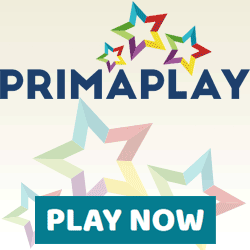Pennsylvania's Sports Gaming Revenue Declines in May, Online Wagering Might Save the Day
June 19, 2019 Andrej Vidovic

For the second consecutive month, the Pennsylvania Gaming Control Board reports a drop in sports betting revenue in this state. The total income fell 32.2% in the month of May, to a total of $2.9 million.
In fact, it was also the total handle that declined as well – on a month-to-month basis, it fell 2.3% to $35.9 million in total wagers. However, the positive momentum going forward is that online sports betting, which has just been launched, is expected to turn the tides and pick up the slack from now on.
The Pecking Order Changed
Over a period of four days…
…bettors have staked $573,163 on Rush Street’s Sugar House site, including the live test series from May 28th – 30th, on the eve of the official launch. Revenue of $38,753 was generated by the operator during this period.
SugarHouse was the market-topper during this time, as their total online and land-based betting revenue amounted to $711,845 – still an 8.9% drop since April. The venue that will soon be rebranded had its stakes rise to $7.9.
Second-place, Rush Street’s Rivers Casino saw revenue of $641,029 (26.5% decline) through total stakes of about $1000 more than those placed in SugarHouse.
Last month’s winner, Parx Casino, fell to third place, as their revenue dwindled down to $639,922 (down 29.5% on a monthly basis), while the handle fell marginally to $6.8 million. Valley Forge Casino sportsbook follows with $240,766, and behind them is Penn National Gaming’s William Hill-powered sportsbook at the Hollywood Casino that raked in $210,637 in revenue.
Revenue Influences Taxes
Further down the line…
…Greenwood Gaming’s South Philadelphia Race and Sportsbook had their sportsbook revenue fall 61.8% to $168,815. Harrah’s Philadelphia’s share in the overall outlook was $138,094 of the market total.
Pennsylvania operators have paid $973,030 in state taxes during May. This is 32.2% less than in April.
The PA sports betting market opened in November 2018. Since then, bettors have placed $198.3 million in wagers, which resulted in $19.7 million in operator revenue. Licensees have paid up $6.7 million in state taxes.
Self-Exclusion Program Launched
The Pennsylvania Gaming Control Board announced in late May that it would soon launch the self-exclusion program.
Essentially a self-help tool available to all citizens of this state who wish to self-exclude themselves from gambling sites, including those that offer sports wagering and casino-like games.
The program will be based on the existing model of the self-exclusion tool that is already available in several Pennsylvania casinos.
Source:
“Pennsylvania sports betting revenue declines again in May”, igbnorthamerica.com, June18, 2019.























This is unexpected. Probably just a temporary setback.